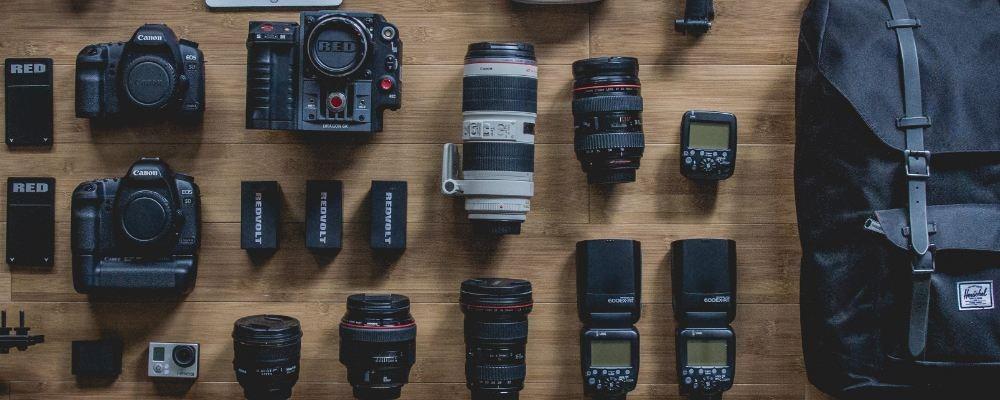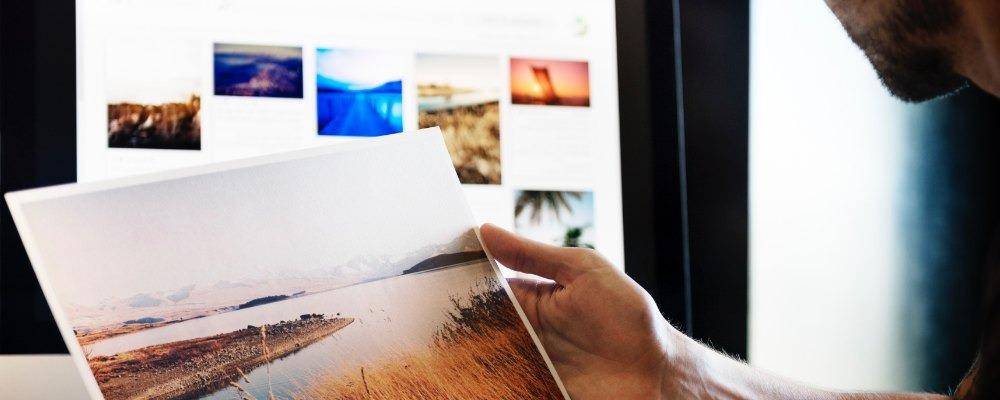How to start a photography business
So you've been studying photography and know enough to take some pictures of high quality and good composition.
You're keen to get started and set up a business, combining your excellent people and technical skills to create superb portfolio that will shine on any wall or website.
But hold on one moment - there's a real difference between the glamour of life on the road snapping interesting people and events, and the reality of setting up a company.
1. Create a Business Plan
Before you fling yourself into the photographic world, prepare a plan.
Ask yourself how you'll deal with your accounting, and what equipment you need.
Will you specialise in certain niches? Will you employ an assistant? How will you market yourself? Do you need a studio, and how much are you willing to pay?
Perhaps most importantly, how will you finance your choices and gain start-up funds?
You need to be a businessperson as much as a photographer now, and it's important that you make that transition quickly.
Cash flow and expenses need to be properly logged, and any invoices need to be sent out quickly and correctly.
Some photographers designate one day a month or so towards updating their website (see below), checking their expenses, and ordering new equipment.
Many photographers operate on a model that combines salaried part-time employment and ad-hoc jobs for a range of clients, sometimes at curious times.
Newspapers still employ some freelancers so you might be able to pick up regular work for a day or two a week with them, but these jobs are few and far between.
You'll need contingency plans for months when work is fallow.
Photographers need to decide whether they'll operate as a limited company, or as one part of a partnership, or as a sole trader.
They may also need to know how to deal with VAT if your revenue exceeds £90,000 and payroll if they employ someone.
The best way to learn more about each of these issues is to contact an accountant and ask for advice.
2. Gain experience
Weddings and live events are not the time to be practicing your techniques.
Getting it wrong and making a mess of it may forever taint your reputation and ruin a big day, especially as there's nowhere to hide any more.
In the 21st century, a poor collection of shots will be appropriately reviewed and shared on social media in the blink of an eye.
For any job that you're taking on you should be aware of not only the technical aspects of photography such as light settings, aperture and focus, but also the real-life practicalities of shooting.
Do you know how to keep children happy or concentrating in a studio setting, for example?
Imagination can often be as important as technical skills; some marrying couples want a standard shoot, while some will prefer quirky, unusual ideas.
Shadowing and assisting an experienced snapper might help you get an overview of the skills you need, and the possible mishaps such as forgetting memory cards and spare batteries!

3. Get insurance
Unfortunately, insurance costs are likely to take a large chunk out of your monthly income. As a bare minimum you may consider:
Public liability and professional indemnity insurance
To protect you against negligence in the event of things going wrong, and any damages awarded against you.
This could include anything from using a corrupted memory card to someone tripping over one of your bags and even through to missing a vital shot.
Employer's Liability
If you have an employee, this will protect them in the event of an accident.
Office and equipment: Insurance for the contents, including computer equipment, laptops and software, mobile phones and other necessary tools of the trade.
Occupational personal accident insurance
This could provide a payment if you are unable to work for some reason that may be work-related or not.
Cyber/data risk insurance
A 21st Century insurance protecting you against hackers who could steal clients' details, including payment information.
You can find out more about different types of business insurance here.
4. Know what to charge
What you charge for your services could depend on a host of factors; difficulty, distance travelled, amount of work, time required, preparation of CDs/albums etc.
It may also depend on the business model you've set yourself, and regularity of work.
Will you charge by the hour, by the job, or by the photograph?
As a rough guide, photographers typically spend three hours editing for every hour of shooting, so this should be factored into costs - if you charge £20 for an hour's shooting, the total bill will be £80.
You don't need to list all of your prices on the site, but you should at least give clients some idea of how long a job might take, how much it costs, and what it includes.

5. Choose your equipment
There's no getting around the fact that you'll probably need to invest in several camera bodies, lenses, flashes, lights and editing equipment - and that's before even considering if you need your own studio or not.
Nikon, Canon, Olympus and the other big brands are constantly updating and innovating, and it's up to you to keep track of what's going on in the industry.
According to Business News Daily, the minimum cost of setting up a photography business will probably be at least £7,500, but possibly much more.
As a bare minimum you'll probably need to spend £3-4,000 on camera bodies and possibly the same again on lenses - zoom, macro and prime lenses, 85mm and telephotos, alongside lenses with fast apertures of 1.4, should all be open to consideration.
However, the equipment is dependent on what you'll be shooting, so costs can vary.
Register for VAT with HMRC early in the process of starting the business so you can claim it back on expensive items.
If you can't afford to buy your equipment outright, then consider renting it by the day from a specialist provider.
While you won't own the equipment, you'll be able to work with the latest technology, and perhaps find a camera you love before paying out yourself.
One other item that needs investment is your print portfolio; potential clients often want to see printed versions of your work, and this should be presented in the most attractive way possible.
A handmade portfolio book could cost around £1,000, but it is a necessary step.
6. Build a website
There are many bespoke website platforms that will let you create a good website in just an hour or two, but to make it really stand out you may want to consider contacting a professional web designer; this is one career where looks really are everything.
Your website categories might include weddings, commercial (inc property/interiors), sport/action, and food and restaurants, although you may not need these if you're settling on a particular niche.
Make sure you include the name of any high-profile clients that you've worked with as well.
Some photographers also have a section on personal photographs (for example family and/or holidays) and maybe a blog.
Your SEO skills should be strong, so that your site can be found and features prominently on search pages - find out more in our guide to SEO.
The website should be updated regularly; take a look at it at least once a week.
Your pictures should be divided into categories, on a site that instantly grabs attention.
A banner slideshow of striking images, at a resolution that's good enough to make jaws drop but not high enough to reduce the loading time to snail's pace, is ideal.

7. Marketing and social media
When you're putting together a marketing plan, be sure to identify your unique selling point.
It might be price, or experience, or a particular level of technical expertise that you possess in a given field.
Depending on your niche, you may still want to invest in print marketing as well.
Become well known by attending shows and networking events and covering charity shows/fairs/events on a voluntary basis.
Sign up to any relevant directories/listings, and investigate setting up adwords accounts and targeting particular niches.
Your social media presence should be strong, and include Facebook, Twitter and Instagram accounts.
Join relevant Facebook groups and cultivate relationships with fellow photographers, as they may pass on your name to potential clients.
If someone contacts you, try to reply within 24 hours at the latest.
Learn with Start Up Loans and help get your business off the ground
Thinking of starting a business? Check out our free online courses in partnership with the Open University on being an entrepreneur.
Our free Learn with Start Up Loans courses include:
- Entrepreneurship – from ideas to reality
- First steps in innovation and entrepreneurship
- Entrepreneurial impressions – reflection
Plus free courses on climate and sustainability, teamwork, entrepreneurship, mental health and wellbeing.
Disclaimer: The Start -Up Loans Company makes reasonable efforts to keep the content of this article up to date, but we do not guarantee or warrant (implied or otherwise) that it is current, accurate or complete. This article is intended for general information purposes only and does not constitute advice of any kind, including legal, financial, tax or other professional advice. You should always seek professional or specialist advice or support before doing anything on the basis of the content of this article.
The Start-Up Loans Company is not liable for any loss or damage (foreseeable or not) that may come from relying on this article, whether as a result of our negligence, breach of contract or otherwise. “Loss” includes (but is not limited to) any direct, indirect or consequential loss, loss of income, revenue, benefits, profits, opportunity, anticipated savings, or data. We do not exclude liability for any liability which cannot be excluded or limited under English law. Reference to any person, organisation, business, or event does not constitute an endorsement or recommendation from The Start-Up Loans Company, its parent company British Business Bank plc, or the UK Government.
Your previously read articles
Sign up for our newsletter
Just add your details to receive updates and news from Start Up Loans
Sign up to our newsletter


